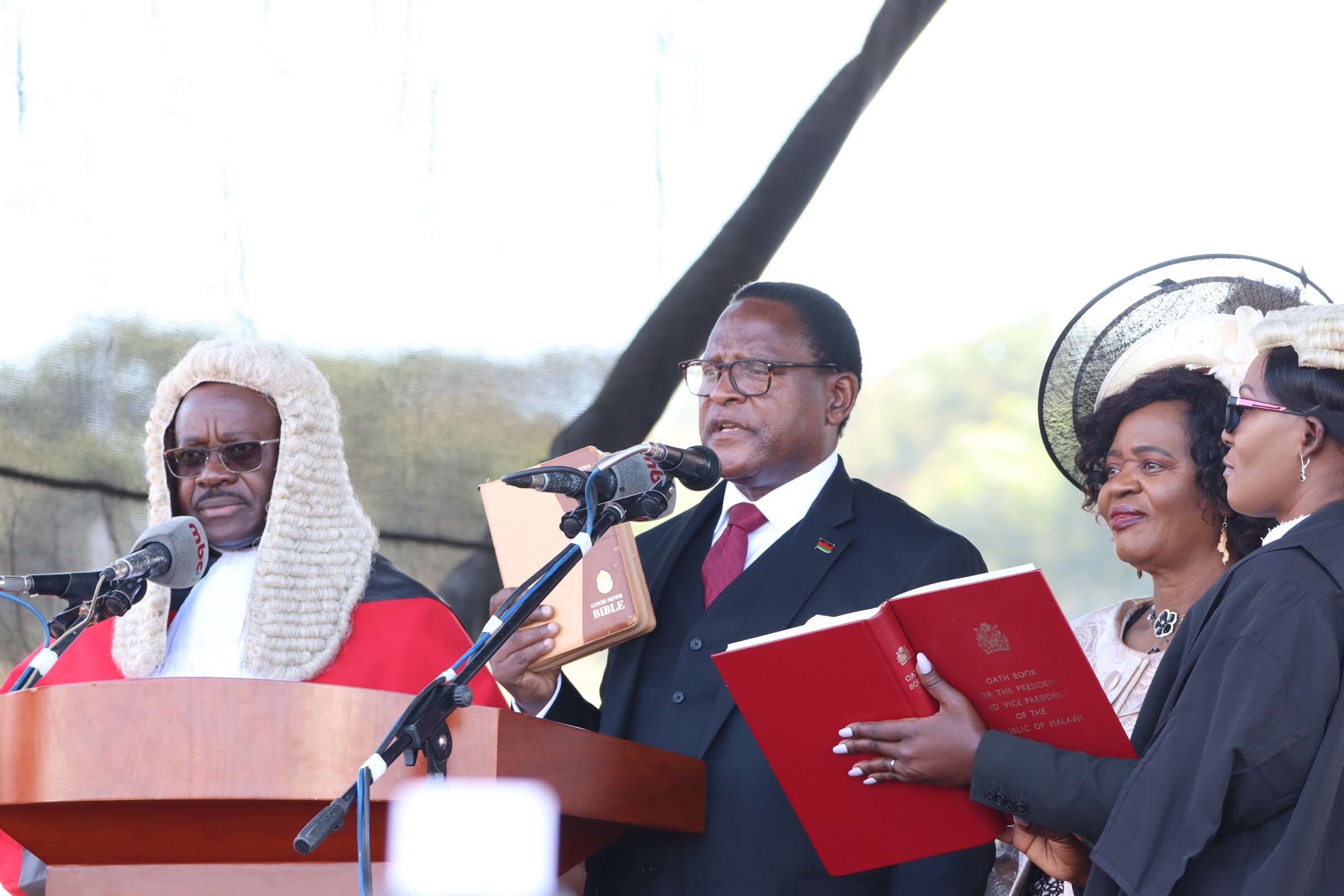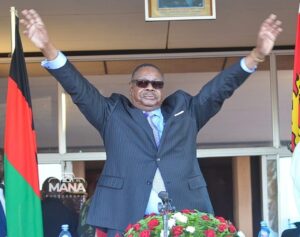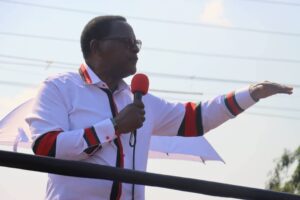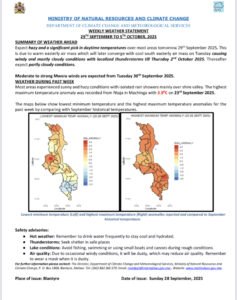

* As odd as reverting to APM seems, Chakwera’s incompetence rendered it inevitable. It is hoped that he reflects deeply — perhaps retiring or undergoing profound transformation
* He should prioritise tangible actions over rhetoric. Malawi requires leaders who truly deliver
Maravi Express
A concerned and a heartbroken Malawian has delved deep into outgoing President Lazarus McCarthy Chakwera’s administration, which he has shared on social media as follows:
As an ordinary Malawian deeply disappointed by the outcomes of recent events, this reflection examines how Dr. Chakwera’s presidency unfolded and ultimately led to his defeat in the September 2025 elections.
He lost badly, securing only about 33% of the vote while Peter Mutharika claimed 57%. It’s hard to believe, but voters chose to return to Arthur Peter Mutharika (APM) because they were so fed up with Chakwera’s leadership.

Advertisement
Mutharika’s slogan; ‘A return to proven leadership’, resonated strongly with those disillusioned by Chakwera’s empty promises and numerous mistakes. This isn’t intended as baseless criticism — it’s an honest post-mortem to highlight what went wrong, in the hope that lessons can be learned.
Ideally, Chakwera should consider retiring or making significant changes to his approach, as Malawi cannot endure more of the same failures.
When Chakwera won in 2020, he entered office as a pastor-turned-politician, offering a fresh start through his ‘Super Hi-5’ agenda: Servant Leadership, Uniting Malawians, Prospering Together, Ending Corruption, and Upholding the Rule of Law.
People were excited — he spoke of being a humble servant leader, reducing presidential powers, combating graft, and fostering unity. However, in retrospect, he failed on nearly all these fronts.
He excelled at delivering speeches, but actions fell short. The nation never truly benefited from having a pastor as president; rather than moral guidance and harmony, there was division, violence, and scandals.
The following sections walk through the key failures year by year, incorporating how he broke those Hi-5 promises. This analysis also delves into the economic turmoil, particularly the falling Kwacha, as no review of his presidency would be complete without addressing how it devastated personal businesses and daily lives.
2020-2021: High Hopes Fade into Early Doubts
Chakwera began his term strongly after the court-ordered rerun in June 2020, defeating APM with ambitious pledges for change. Yet, early cracks appeared. On ‘Servant Leadership’, he promised humility and a reduction in presidential powers, such as limiting his appointing authority to enhance accountability.
He even committed to legislation capping the cabinet at 14-20 members. However, he took no steps to follow through. Instead, his cabinet expanded to 31 members, rife with nepotism and loyalists, disregarding appeals from organisations like the Public Affairs Committee.
This hardly embodied servant leadership — it seemed more like constructing a personal power base.

Advertisement
Regarding ‘Prospering Together’, he pledged affordable fertilizer, one million youth jobs, and food security ensuring three meals a day for all. But by 2021, inflation rose, food prices skyrocketed, and job creation was far from the target.
Critics highlighted his unfulfilled promises, and while he attributed issues to CoVID-19 or natural disasters, this did little to alleviate household hunger. Initial currency troubles emerged too, with forex shortages beginning to impact businesses reliant on imports.
Corruption issues surfaced early, such as the Zuneth Sattar network involving bribes for government contracts. Despite his strong rhetoric on ‘Ending Corruption’, it appeared superficial.

Zuneth Sattar
The state broadcaster, MBC — funded by public taxes — functioned more as Chakwera’s personal outlet, providing extensive coverage to him and the MCP while side-lining or criticising the opposition. This perpetuated biases from prior regimes, now under his administration. Such practices did nothing to unite the nation.
2022: Betraying Allies, Overlooking Corruption, and Deepening Currency Woes
This year saw Chakwera falter severely on ‘Uniting Malawians’. He marginalised his popular Vice-President, Saulos Klaus Chilima (SKC), by revoking his delegated powers after associating him with the Sattar investigation. He disregarded Chilima’s Public Sector Reform Report. Chilima had invested all his effort and the report was to be his major contribution to the Tonse Alliance Government.

Chakwera and Chilima on their campaign trail
Whatever the UTM had promised the people during campaigns was with the hope of the implementation of recommendations of this particular report. Supporters of Chilima felt alienated, deepening national divisions.
On ‘Ending Corruption’, he dissolved the Cabinet in January amid scandals, but the action lacked depth. An official who accepted a Mercedes Benz bribe from Sattar was merely instructed to return it, without dismissal.
His Cabinet secretary, Colleen Zamba, faced ongoing corruption allegations yet remained in post. The 4a.m. raid on ACB Director Martha Chizuma prompted his irritation when questioned, leading to a commission that oddly criticised her more than the perpetrators. This undermined the Rule of Law he had vowed to uphold.

Chakwera first considered Chizuma as his champion in fight against corruption
The Bridgin Foundation episode was humiliating — Chakwera hosted the group, endorsed fictitious multi-billion-dollar deals, and expended public funds on their visit. When the scam unravelled, no accountability followed. Malawians expressed outrage over the squandered resources.
Adding to the corruption woes and directly betraying the ‘Prospering Together’ promise of affordable fertilizer, a major scandal erupted involving the Affordable Inputs Programme (AIP).
The government procured fertilizer from Barkaat Foods Ltd, a UK-based company with no ties to fertilizer production — it was actually a butchery specialising in meat products. Despite this, officials awarded them a contract for 25,000 metric tonnes, paying an advance of about K750 million (around US$750,000), which the company pocketed before cancelling the deal and failing to deliver.
This fiasco, revealed in October, led Chakwera to fire Agriculture Minister Lobin Lowe and his deputy for incompetence and negligence, but it highlighted a lack of oversight under his watch. It took Attorney General Thabo Chakaka Nyirenda to pursue legal action for a refund, underscoring that Chakwera was not in full control as president.
Similar dubious procurement transactions occurred a few other times during his term, such as additional fertilizer deals tied to the broader Zuneth Sattar corruption network and other misprocurements that drained public funds without delivery, further eroding trust in his anti-corruption commitments.
MCP affiliates appeared at protests wielding panga knives, assaulting demonstrators opposed to his rule. He rarely condemned these acts, raising doubts about whether a pastor-president could promote peace.

Malawi kwacha
Economically, the Kwacha suffered its initial major devaluation of 25% in May. This drove up costs abruptly, affecting small businesses dependent on imports. Forex shortages intensified, with banks restricting dollar access, driving individuals to the black market at inflated rates.
Cross-border traders, who sustained families through regional commerce, struggled to obtain sufficient dollars at official rates, crippling their operations. The artificial exchange system only fuelled more illicit trading.
2023: Disasters Reveal Vulnerabilities, and Economic Suffering Intensifies
Cyclone Freddy struck devastatingly in March, claiming hundreds of lives in the south. The need to borrow helicopters from Tanzania for rescues and Chakwera’s assessments exposed unpreparedness. In terms of ‘Prospering Together’, this aggravated food insecurity, with his response appearing sluggish.
Further panga assaults by MCP supporters on protesters occurred, without firm denunciation from him. This widened divisions.

Violence that took place in Lilongwe in full view of the police
The Kwacha endured another severe 44% devaluation in November. Prices for essentials surged, with inflation exceeding 27% overall and 35% for food. Businesses, particularly those in international trade, could no longer afford imports, resulting in shortages and job losses.
Forex reserves neared depletion, making legal dollar access even scarcer. Rumours circulated about ministers drawing unlimited dollars during foreign trips at official rates, only to resell them on the black market for gains.
Such perceptions bred resentment, illustrating how the system privileged insiders while ordinary citizens suffered.
2024: Tragedies and Persistent Shortcomings Amid Currency Breakdown
Chilima remained side-lined, undermining unity. Chizuma’s departure from the ACB in May without extension signalled the erosion of Chakwera’s anti-corruption efforts.
The June plane crash that killed Chilima was not just tragic but a glaring example of gross incompetence in crisis management, further fracturing public trust and fuelling divisions.
The military Dornier 228 aircraft, carrying Chilima and eight others, departed Lilongwe around 9:17am on June 10 en-route to Mzuzu but vanished after air traffic controllers advised it to return due to poor visibility and bad weather.

Chakwera and Chilima during the election case
Last contact was around 10:02am, yet Chakwera remained silent for over four hours, only issuing a statement later that day that appeared ill-informed — he claimed the plane had reached Mzuzu, assessed the bad weather, and turned back to Lilongwe, which contradicted emerging details and raised questions about the accuracy of official information.
The search efforts were chaotic and delayed, with the wreckage in Chikangawa Forest not located until the morning of June 11, after operations were suspended overnight despite the cold weather conditions that would have diminished any chance of survival.

The plane crash
Reports emerged of locals near the crash site, including a guard at a nearby tower, hearing sounds indicative of an impact but doubting themselves due to the lack of any government announcement confirming the plane was missing — this absence of timely communication potentially cost precious time that might have allowed for earlier intervention and the possibility of saving lives.
The need to borrow aircraft from Zambia for body recovery only compounded the embarrassment and highlighted logistical failures.
In a stark contrast, many believed that if roles were reversed and Chakwera had been aboard, Chilima would have mobilised ground searches immediately, provided frequent updates, and hoped for a positive outcome.
Instead, Chakwera’s muted and seemingly detached response — possibly even allowing him a night’s rest before news of the wreckage broke — exemplified a leadership vacuum.

The ill-fated Dornier
The Commission of Inquiry he established, whose report was released in December 2024 attributing the crash to environmental and human factors, was widely criticized as a face-saving exercise that focused on technicalities rather than scrutinizing the faulty rescue process, assigning blame, or addressing systemic lapses in oversight and response.
This incident sparked widespread conspiracy theories, protests demanding truth and justice, and a deeper crisis of political legitimacy, as the government’s vague explanations and lack of accountability filled the information void with suspicion.
MCP violence persisted, with attacks on protesters, and Chakwera failed to condemn it adequately, allowing fear to proliferate. The US barred certain officials for corruption, yet Chakwera protected his allies.
A further 25% devaluation in May weakened the Kwacha more. Cross-border traders bore the brunt, unable to secure adequate dollars from banks due to unrealistic official rates, pushing them into the perilous black market.
Families depending on this trade watched their incomes vanish. Government efforts to curb the black market were insufficient and belated, with parallel rates spiking to extremes like K5,000 per dollar before easing slightly.
2025: Economic Turmoil, Superficial Support, and Campaign Tactics Cement the Downfall
As elections approached, fuel shortages became acute, with queues persisting on voting day, September 16. Botched procurement exacerbated this, alongside inflation surpassing 20%. Prosperity was absent.

Persistent fuel queues

Even fuel tankers need topping up
The currency crisis stranded Malawians overseas without forex for essentials and forced business closures from soaring import expenses. This chaos explains why many aligned with leaders like Chakwera temporarily — to gain favours or dollar access for survival. Yet, it was superficial affection; at election time, they reverted to their genuine sentiments and ousted him.
He may have assumed widespread backing across Malawi, but it stemmed from opportunism rather than true loyalty.
Chakwera utilised public funds for his campaign, including extravagant events, while MBC maintained partisan coverage.

Chakwera on his campaign trail

He delayed cabinet dissolution, enabling Ministers to exploit state resources for their parliamentary campaigns. This appeared manipulative.
Additional MCP panga attacks targeted demonstrations in areas like Lilongwe and Mzuzu, with Chakwera remaining silent. These accumulated failures — from shattering Hi-5 commitments to disregarding violence, corruption, and the debilitating currency crisis — alienated the populace.
The plummeting Kwacha didn’t merely affect large enterprises — it devastated small traders and families unable to sustain themselves. As odd as reverting to APM seems, Chakwera’s incompetence rendered it inevitable. It is hoped that he reflects deeply — perhaps retiring or undergoing profound transformation.
He should prioritise tangible actions over rhetoric. Malawi requires leaders who truly deliver.
With hope for better days from a heartbroken Malawian.



Advertisement
* Weather update

